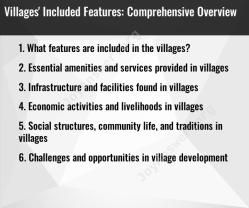What is the process for buying a home with cash?
Buying a home with cash can streamline the home-buying process compared to traditional financing methods. Here's a step-by-step guide for purchasing a home with cash:
Determine Your Budget:
- Assess your finances to determine the amount you can comfortably spend on a home. This will be the budget for your cash purchase.
Research and Find a Property:
- Conduct thorough research to identify potential properties that meet your criteria. Work with a real estate agent if needed, as they can provide valuable assistance in finding suitable homes.
Property Inspection:
- Once you've identified a property, conduct a thorough inspection. Hire a qualified home inspector to assess the condition of the property, identify any issues, and ensure it meets your expectations.
Negotiate the Purchase Price:
- Negotiate the purchase price with the seller. Your ability to negotiate may be strengthened when making a cash offer, as it eliminates the need for financing contingencies.
Draft a Purchase Agreement:
- Work with a real estate attorney or agent to draft a purchase agreement that outlines the terms and conditions of the sale. Include any contingencies and deadlines.
Open Escrow:
- Open an escrow account with a title company to facilitate the transfer of funds and documents between the buyer and seller. The title company will also conduct a title search to ensure there are no liens or legal issues with the property.
Complete Due Diligence:
- Use the escrow period to complete any due diligence, such as reviewing property disclosures, obtaining a survey, and ensuring all necessary inspections are conducted.
Finalize Closing Details:
- Work with the title company to finalize closing details. Ensure that all necessary documents are prepared, and the closing date is scheduled.
Closing:
- Attend the closing meeting to sign the necessary documents and officially transfer ownership. Bring a certified check or arrange for a wire transfer to pay the purchase price.
Receive the Deed and Close Escrow:
- Once all documents are signed, and funds are transferred, the title company will record the deed with the appropriate government office. The property is officially yours, and escrow is closed.
Home Insurance:
- Arrange for homeowner's insurance to protect your investment. Many lenders require insurance, but when purchasing with cash, it's still a wise and protective measure.
Utilities and Change of Address:
- Set up utilities in your name, and update your address with the post office, financial institutions, and other relevant entities.
Enjoy Your New Home:
- Move in and enjoy your new home!
While this guide provides a general overview, the process may vary based on local regulations and specific circumstances. It's highly recommended to work with professionals, including real estate agents, attorneys, and title companies, to ensure a smooth and legally sound transaction. Additionally, consult with financial and tax professionals to address any financial and tax considerations associated with a cash home purchase.
Pre-approval for a mortgage loan before making a cash offer on a home
Even if you plan to buy a home with cash, it is still advisable to get pre-approved for a mortgage loan. Pre-approval demonstrates your financial capacity to the seller, strengthening your offer and potentially giving you a negotiating advantage.
Pre-approval involves providing financial documentation to a lender, who will assess your creditworthiness and determine the maximum loan amount you qualify for. This pre-approval process provides you with a clear understanding of your purchasing power and helps you make informed decisions when making an offer.
Home inspection and appraisal to ensure the property's condition and value
A home inspection is a crucial step in the home buying process, regardless of your payment method. A qualified inspector will thoroughly examine the property's structure, systems, and components, identifying any potential defects or repairs that may be required.
A home appraisal, on the other hand, determines the fair market value of the property. This appraisal is typically conducted by a licensed appraiser and is used to ensure the purchase price is aligned with the property's actual value.
Both the home inspection and appraisal provide valuable insights into the condition and value of the property, allowing you to make informed decisions about your purchase and negotiate accordingly.
Title search and insurance to verify ownership and protect against liens or encumbrances
A title search is an essential step to ensure the seller has clear and marketable ownership of the property. This search involves examining public records to identify any potential liens, encumbrances, or disputes related to the property's title.
Title insurance protects homeowners from financial losses due to defects or errors in the title search. It provides coverage against potential claims that may arise from title issues, such as hidden liens or ownership disputes.
Title insurance is typically required by lenders to protect their investment in the property. It also provides peace of mind for homeowners, ensuring they have clear title to their property and are protected from unforeseen title issues.
Closing process, including signing contracts, transferring funds, and finalizing ownership
The closing process is the final stage of the home buying journey, where all legal and financial transactions are finalized. This process involves signing various contracts, transferring funds, and officially transferring ownership of the property to the buyer.
Key steps in the closing process include:
Reviewing and signing the purchase agreement and other closing documents
Transferring funds for the down payment, closing costs, and any remaining mortgage proceeds
Signing the mortgage documents and finalizing the loan terms
Obtaining title insurance and finalizing the title transfer
Completing any necessary repairs or inspections required by the lender
Once the closing process is complete, the buyer officially becomes the owner of the property and receives the keys.
Post-closing tasks, such as registering the property, setting up utilities, and moving in
After the closing process is complete, there are a few post-closing tasks to finalize the homeownership experience. These tasks include:
Registering the property with the local government to update ownership records
Setting up utilities, such as electricity, water, and gas, in your name
Arranging for home insurance to protect your property against potential risks
Changing your address with relevant institutions, such as banks, insurance companies, and government agencies
Moving in and settling into your new home, making it your own












